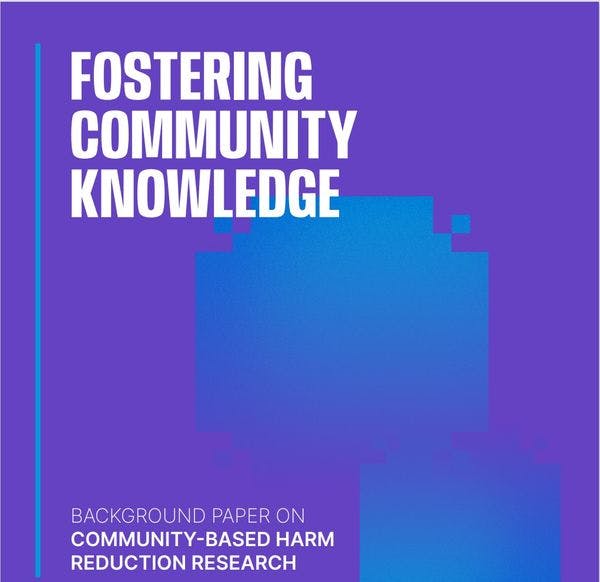Correlation – European Harm Reduction Network
Fomentar los conocimientos comunitarios - Documento de referencia sobre la investigación de base comunitaria respecto a reducción de daños
La Red Europea de Reducción de Daños analiza lo que significa contar con una mayor participación de la comunidad en la investigación sobre reducción de daños, y cómo ello puede fomentar la creación de conocimientos más complejos y multidimensionales. Más información, en inglés, está disponible abajo.
Communities of people who use drugs have for decades, and prior to the establishment of mainstream health services, designed and implemented some of the most effective evidence-based harm reduction interventions, such as needle-exchange programs, peer-delivered naloxone and community-based drug checking (Salazar et al., 2021). However, research collaborations between people who use drugs and academic stakeholders often remain scarce, undervalued, and misinterpreted (e.g., Simon et al., 2021). The involvement of harm reduction professionals and community members in research is often limited to serve as interviewees or a gateway to access other, often hard-to-reach participants. Consequently, community members may feel that their meaningful involvement is virtually missing, and research data results in evidence which dismisses the knowledge, experiences, and needs of the communities that are the focus of studies and hence, those who should benefit the most (Simon et al., 2021).
Evidence and research are needed to advocate for more access to and coverage of high-quality harm reduction services (e.g., Hanney et al., 2003). However, the relationship between research, policy and practice is a complex one. Consequently, it requires more efficient and functional connections between academia, street-level practitioners and communities of people who use drugs, spanning through the process of planning, designing, and conducting the research. This more collaborative approach needs also to facilitate the dissemination of results emanating from scientific studies. Partly due to requirements within the academic field, publishing in high-impact journals is often the most desired outcome for academic researchers. On the other hand, translating research findings from complex, highly abstract academic texts into relevant practical recommendations (that are understandable outside the scientific profession and more easily used by practitioners and community members) does not seem to receive enough attention
